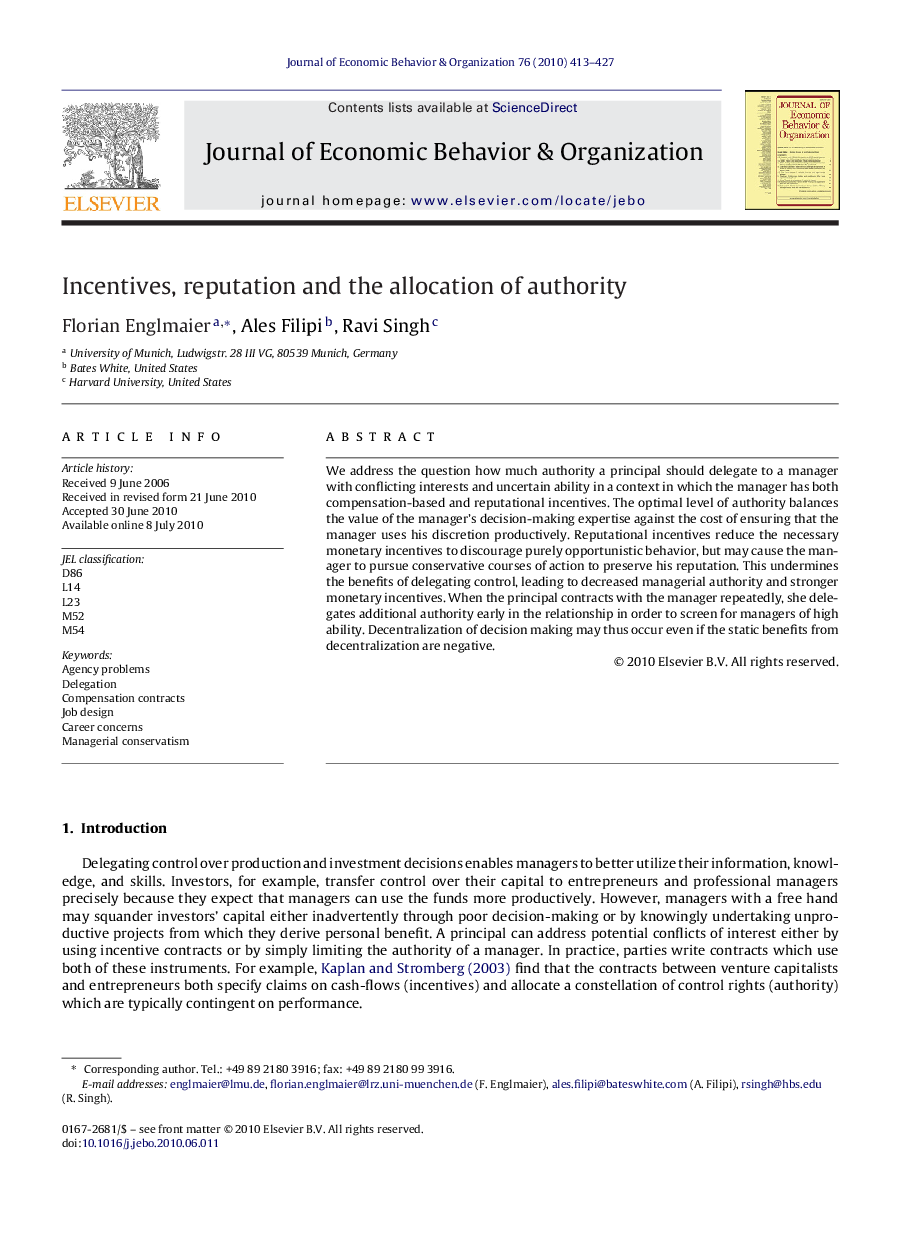| Article ID | Journal | Published Year | Pages | File Type |
|---|---|---|---|---|
| 883947 | Journal of Economic Behavior & Organization | 2010 | 15 Pages |
We address the question how much authority a principal should delegate to a manager with conflicting interests and uncertain ability in a context in which the manager has both compensation-based and reputational incentives. The optimal level of authority balances the value of the manager’s decision-making expertise against the cost of ensuring that the manager uses his discretion productively. Reputational incentives reduce the necessary monetary incentives to discourage purely opportunistic behavior, but may cause the manager to pursue conservative courses of action to preserve his reputation. This undermines the benefits of delegating control, leading to decreased managerial authority and stronger monetary incentives. When the principal contracts with the manager repeatedly, she delegates additional authority early in the relationship in order to screen for managers of high ability. Decentralization of decision making may thus occur even if the static benefits from decentralization are negative.
